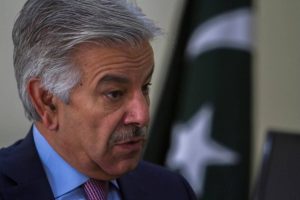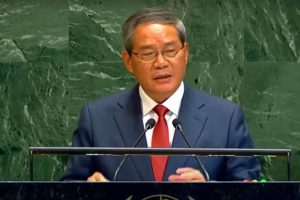In a bold move to ramp up pressure on countries maintaining trade ties with Russia, US Senators Lindsey Graham and Richard Blumenthal have called for massive tariffs—up to 500%—on nations like India, China, and Brazil if they continue purchasing Russian oil and gas, which they claim is “fueling Putin’s war machine.”
The call comes amid President Donald Trump’s announcement of imposing 100% secondary tariffs on Russia unless President Vladimir Putin ends the Ukraine conflict within 50 days. Graham and Blumenthal, who co-authored the “Sanctioning Russia Act of 2025”, are pushing for broader Congressional support to enforce harsher economic penalties on nations allegedly helping sustain Moscow’s war efforts.
“We’ll continue to push for our Russia Sanctions bill with even tougher penalties to deter India, China, Brazil & others from fueling Putin’s war machine,” Senator Blumenthal said on X.
The bipartisan bill, which has 85 cosponsors, proposes sweeping economic sanctions and trade barriers against countries continuing commercial relations with Russia, especially in the energy sector.
In a joint statement, the Senators said: “The ultimate hammer to end this war will be tariffs against countries that prop up Putin by buying cheap Russian oil and gas. President Trump’s announcement of 100% secondary tariffs is a real executive hammer to drive parties to the peace table.”
Blumenthal hailed the President’s plan as a “breakthrough step”, urging further momentum behind the bill to show “sledgehammer strength” against Putin.
Meanwhile, India has taken note of the developments. Earlier this month, External Affairs Minister S. Jaishankar acknowledged ongoing communication with Senator Graham. He said India’s concerns over energy security have been conveyed clearly, adding: “We’ll have to cross that bridge when we come to it—if we come to it.”
President Trump’s warning came during his meeting with NATO Secretary General Mark Rutte, where he said: “We’re very, very unhappy with Russia. If we don’t have a deal in 50 days, we’ll be doing very severe tariffs—100%, what you’d call secondary tariffs.”
The proposal underscores increasing pressure from Washington on India and other global players to reconsider their energy ties with Moscow. Whether such tariffs materialize remains to be seen, but the message is clear: Washington wants to tighten the economic noose around Russia—and is willing to penalize others to do so.





